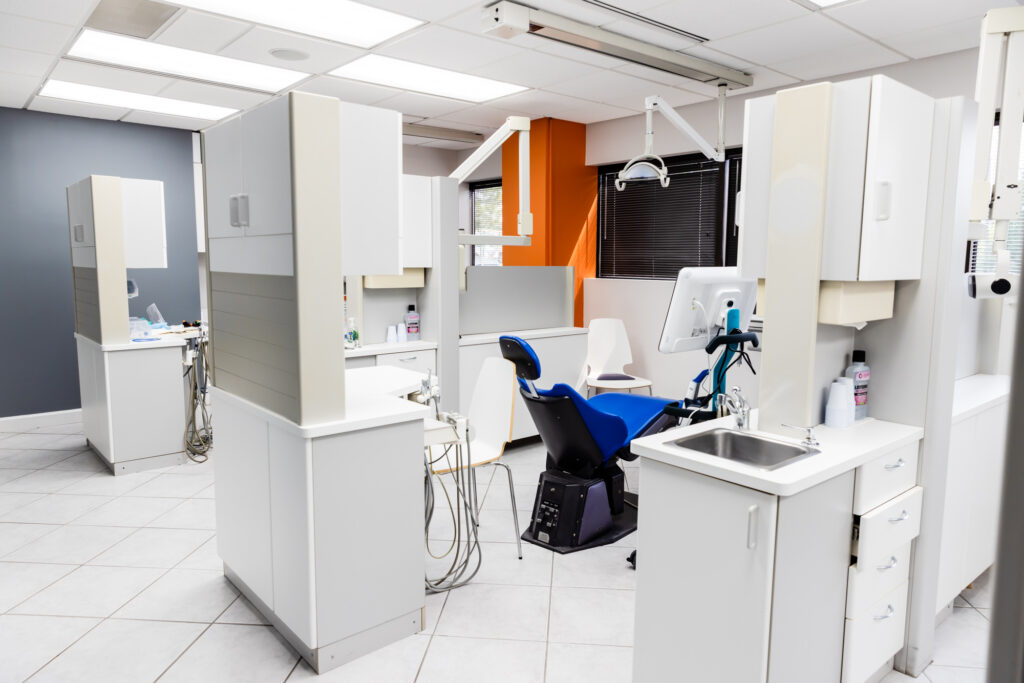Yes, you can use fluoride toothpaste even when they are babies. The amount on the brush should be no larger than a grain of rice, and make sure your baby doesn’t swallow any toothpaste.

Teeth Care Guide in Herndon
Dental Care At Home
The Ultimate Parent’s Guide to Raising Healthy Teeth
Consistent dental care at home is important to keep gums and teeth healthy throughout infancy, childhood, and adulthood. Over time, lack of diligent care contributes to cavities, infections, gum recession, and other conditions that are more difficult and costly to treat down the road. Using preventive techniques is not only healthier for your child’s dental health but also cost-effective in the long run. We believe in educating parents and children on the importance of preventive care to avoid dental issues from arising in the future.
At Hero Pediatric Dentistry in northern Virginia, we offer exceptional professional teeth cleanings for your child. Our dentists also provide a teeth care guide to help you continue the great work at home. By following our simple steps every day, you can reinforce healthy dental habits that last a lifetime. With our superhero training, your child can have amazing dental health and a great smile to match!

How To Take Care Of Your Child’s Teeth At Home
Plaque is the “supervillain” of clean and healthy teeth. It’s bacteria that forms on your teeth after consuming carbohydrates (starches and sugars).
When plaque remains on your teeth, it hardens into tartar which can only be removed by a dentist, and it breaks down your teeth, gums, and roots. It causes cavities, infections, and more, but its damage can be avoided with a proper dental routine. Limiting foods with starches and sugars, such as candy, soda, chips, and cake, helps reduce plaque buildup as well.
To keep mouths clean and get rid of unwanted plaque, brush your child’s teeth twice a day—once in the morning and once at night. For good dental hygiene, the proper way to brush your teeth is to:
- Angle the toothbrush at a 45-degree angle toward the gum line.
- Gently brush along the teeth and gum line.
- Brush for two minutes, dividing the time equally among each section of teeth.
- Don’t forget to brush the tongue!
- Rinse out the mouth to remove all traces of food and bacteria.
How you clean your child’s teeth also depends on their age. When they are babies, the brushing routine looks a little different.
Ages 0-2
Before your child’s teeth come in, use a damp washcloth to wipe down their gums and clear away any food or bacteria. Once they begin teething, start brushing their teeth with water using a soft-bristled brush, while continuing to clean the gums with a washcloth.
You don’t need to introduce toothpaste until more teeth come in. Then, only use a drop of toothpaste as big as a grain of rice.
When your little one’s first tooth comes in, it’s time to schedule their first visit with a pediatric dentist! We will not only give your child a thorough cleaning, but we’ll also be happy to answer any questions you may have and provide personalized guidance on how to care for your child’s teeth.
Ages 2-6
By the time your child is about 3 years old, more of their baby teeth should have erupted, and it’s time to use a pea-sized amount of toothpaste for brushing. When the teeth start to fit closely together, add in flossing twice a day to remove the pesky plaque from between their teeth.
By now, teeth brushing should be a team effort between you and your child. While they’re still young, you can assist with the actual brushing, but over time, your child will learn how to brush on their own, and you can supervise. This is a great opportunity for them to become more independent and develop good brushing habits.
Ages 6+
Now your child is a bit more independent and can handle brushing and flossing on their own. We recommend keeping an eye on their brushing habits every once in a while, though, so you can make sure your child is training like a superhero for amazing dental hygiene!
As they grow up, it’s always essential to come in for their dental cleaning every 6 months. We know life can get in the way, but even if you have struggled with consistent dental care, we can help with their teeth no matter what!
Frequently Asked Questions
It’s perfectly normal for your child to suck their thumb while they are young. Normally they grow out of the habit between ages 2 and 4. If it persists, however, it can create crooked teeth or bite problems. If you see your pediatric dentist regularly, they can also identify if thumb sucking is causing any issues and can recommend best courses of action.
Unfortunately, once a tooth has a cavity, it cannot heal or repair itself on its own. We treat cavities with fillings, although more serious forms of tooth decay might require crowns, root canals, or even extractions.
Yes! Even though the tooth may fall out eventually, cavities can still cause infections in gums, other baby teeth, or even the adult teeth that are growing in. Cavities may be painful, and children can develop bite issues or avoid certain nutritional foods to compensate for the pain. If you suspect your child is struggling with a cavity, let your dentist know to discuss methods of treatment.

Ready to Learn More?
Our dentists are here to help your child get their best smile.
Frequently Asked Questions
How frequently you’ll visit our office depends upon your particular treatment plan. Some treatments have flexible scheduling that we schedule to your convenience. Others are more regularly scheduled for every couple of months.
Orthodontics is a field of dental specialty which focuses on diagnosing, preventing and treating dental and facial irregularities, usually those involving misaligned teeth and jaws. Orthodontists are dentists who have completed two to three years of additional specialty training in order to address these concerns and help patients straighten their teeth, correct misaligned jaws and resolve related problems.
There are a variety of orthodontic treatments available, ranging from traditional metal braces to ceramic (clear) braces and clear aligners. Our orthodontists will discuss your treatment options with you to help you find the type of orthodontic treatment that will be most effective and work with your lifestyle.







